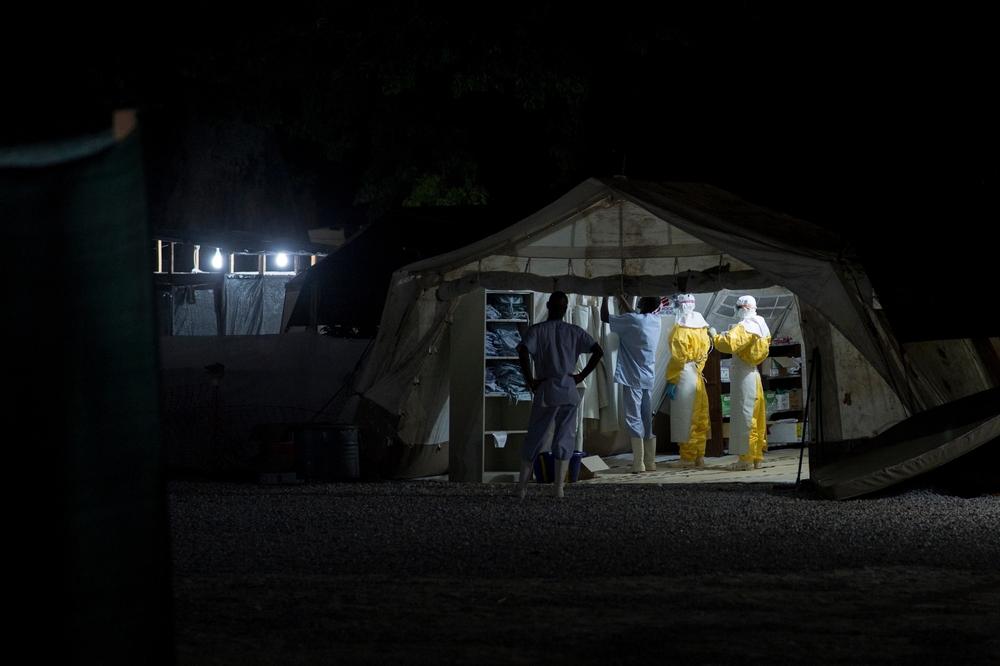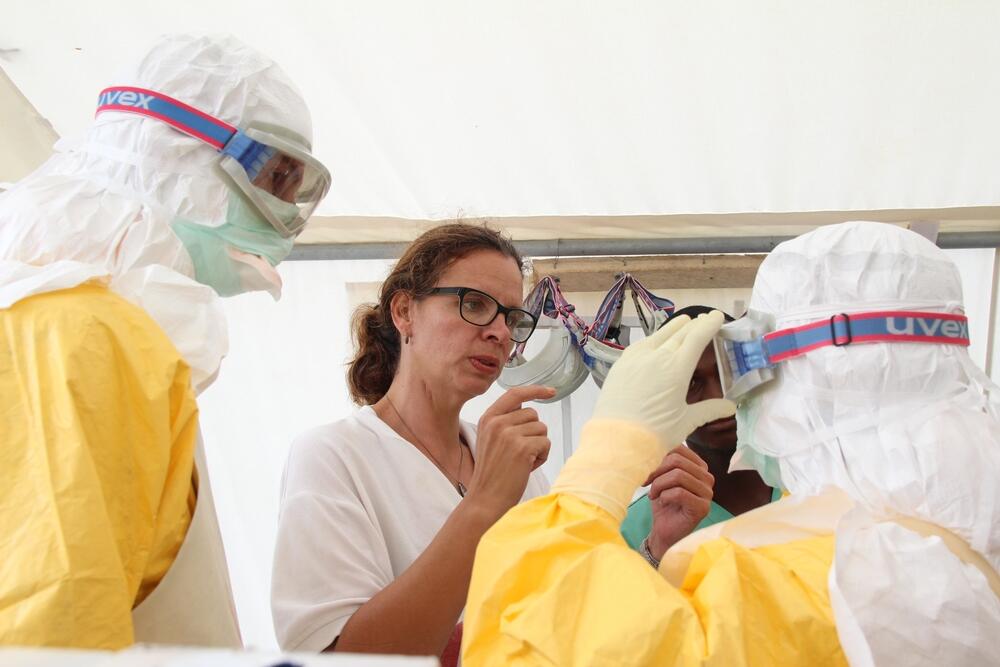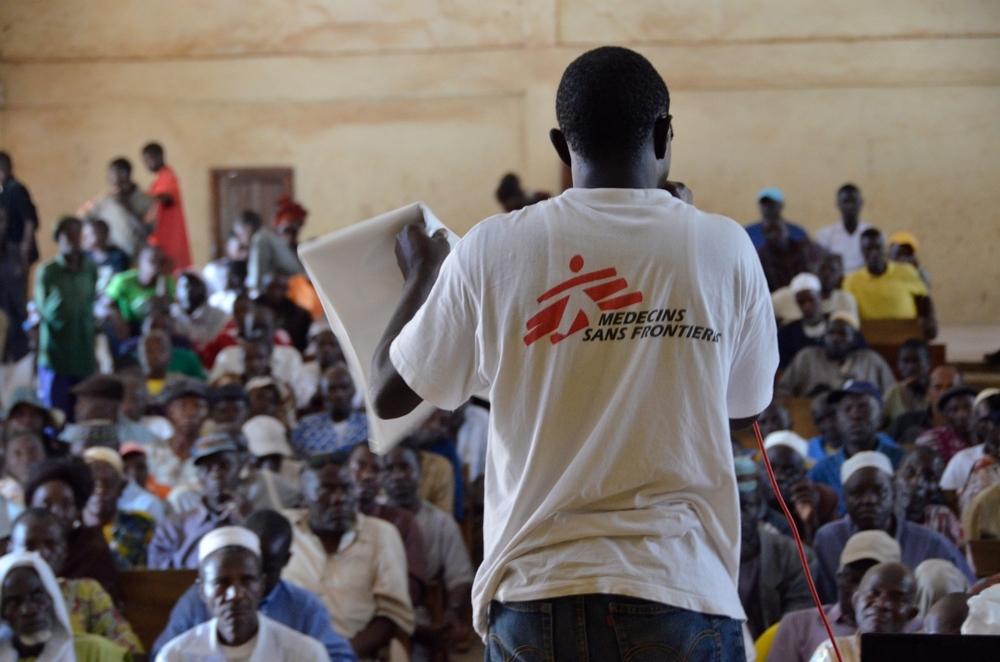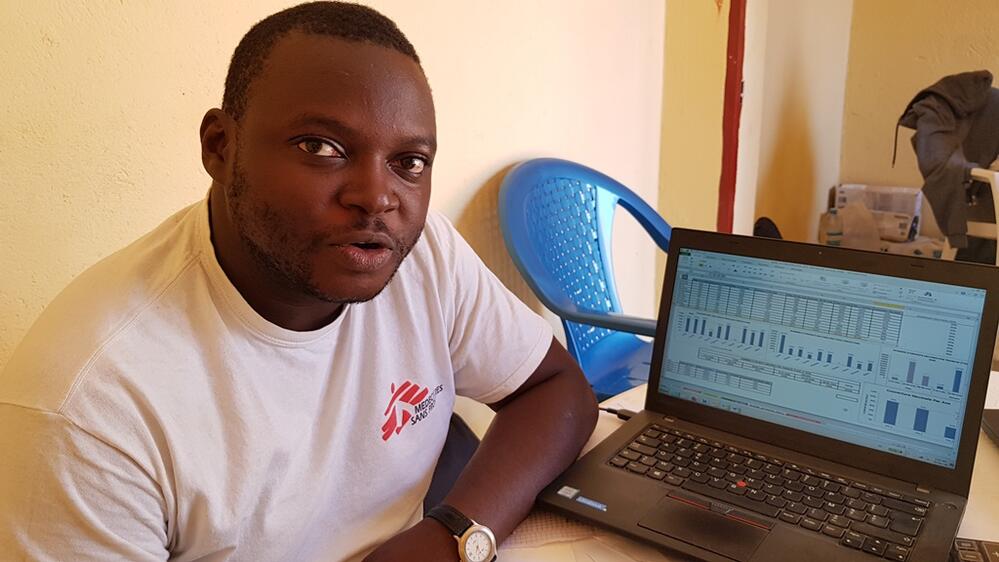Ebola: Five questions about the new outbreak in Guinea
On 14 February 2021, authorities in Guinea declared a new Ebola outbreak.
As one of the key medical organisations responding to the huge 2014-2016 West Africa Ebola outbreak – which claimed the lives of over 11,000 people – MSF immediately started mobilising a team of experienced Ebola specialists to form an emergency response.
Anja Wolz was part of the initial team dispatched to neighbouring Sierra Leone in 2014 and is now the Emergency Coordinator for this latest Ebola response. Here, she answers five important questions and concerns about the current outbreak in Guinea.
1 | How concerned are you by this new outbreak?
With all epidemic responses, it is important to be calm and focused. This is, however, Ebola and that is always concerning.
This is why we have mobilised a team of some of MSF’s most experienced Ebola specialists who will travel to Guinea as soon as the administrative and visa processes allow.
We may find that this is a small outbreak – easy to control and contain - or we may find that the problem is bigger and more complex.
2 | What needs to happen at the start of an Ebola response?
First of all, you need a clear picture of the problem.
An epidemiological surveillance team, with one MSF epidemiologist included, departed on Monday 15 February for the affected areas of N'Zerekore and Gouéké, in the far south of the country.
They have started to do the epidemiological surveillance work, but we do not yet have full clarity about what we are facing.
Then, a series of key things have to happen rapidly and well:
- Contact tracing of people who may have been in contact with someone who has Ebola, so we can monitor their health and stop any future transmission
- Making sure medical facilities are equipped with the right set up to isolate and treat Ebola patients
- Establishing safe funeral processes for anyone who dies of Ebola or suspected Ebola, as bodies remain highly contagious
- Distributing clear and effective healthcare education information
- Helping health facilities set up triage procedures to minimize the chances of Ebola affecting the rest of the healthcare system
- Above all else, engaging with communities about our work and what they can do to help
Community engagement is particularly vital. You need to invest time and energy in talking and listening to the communities in affected areas.
You need to adapt the response according to what they say, and you need them to adapt to the risks of Ebola. It has to be a two-way conversation.
90%
UP TO 90% MORTALITY RATE FROM EBOLA
11,300
PEOPLE KILLED IN THE 2014-16 EBOLA OUTBREAK
14
OUTBREAKS OF EBOLA IN DRC IN THE PAST 40 YEARS
3 | What about an Ebola vaccine?
It is certainly true that the existence of Ebola vaccines is one of the key differences from the outbreak in 2014-2016. And this is great news, but we need to be careful in how expectations are set.
It is unlikely there will be enough vaccines to cover entire regions. This will mean the choices about the use of the vaccine need to be very clearly explained to avoid misunderstandings and potential distrust in communities affected by Ebola.
It all comes back again to community engagement. We have seen this many times in the past.
If a community feels involved, heard and empowered, then an Ebola response will likely go well, with or without vaccines.
But, if a community feels sidelined, unheard and becomes nervous or distrustful, then an Ebola response will likely face multiple difficulties, with or without vaccines.

Help us prepare for the next emergency
4 | What about new Ebola treatments?
It is true that Ebola treatments did not exist at the start of the 2014 outbreak, and so this is a significant difference today.
We do not yet know which of the treatments will be used in this response in Guinea, but the very fact of having a treatment option is good for two reasons.
First, it significantly increases a patient’s chances of survival – particularly if the patient starts treatment reasonably early
Second, it also means we have better chances of encouraging people to come in early for isolation and treatment.
Before there was a treatment available, it was understandable that people would stay away from Ebola Treatment Centres which often became feared as places of death. But, with treatment available, that could change substantially.
This matters for outbreak control because when someone with Ebola is isolated, they are not spreading the virus to others.
5 | What will MSF be doing in the response?
We will have a small multidisciplinary team of Ebola experts, able to turn their hand to pretty much all aspects of the response.
We already have an initial advance team that moved to the area to help with epidemiological surveillance and to start understanding community knowledge of Ebola. This is so that health education information can be adapted appropriately.
When the dedicated Ebola team arrives, they will combine forces and make quick decisions about where and how MSF can be of the most help.
The team will have the skills and equipment to do whatever is most needed – from Ebola medical treatment to epidemiological surveillance work, health education, contact tracing, community engagement or vaccination.
However, there is an essential thing to keep in mind for MSF and for all other teams engaged in the response.
You need to bring your technical skills – medical, epidemiological, infection control or health education, etc.
But, you also need to bring your soft community engagement skills. Both are needed in an Ebola epidemic response.
MSF and Ebola
Ebola is one of the world’s deadliest diseases.
The virus can kill up to 90 percent of people who catch it, causing terror among infected communities. Ebola is so infectious that patients need to be treated in isolation by staff wearing protective clothing. While there is no cure, vaccines are under development.
In recent years Médecins Sans Frontières/Doctors Without Borders (MSF) teams have fought major outbreaks of Ebola in the Democratic Republic of Congo (DRC) and across West Africa.




